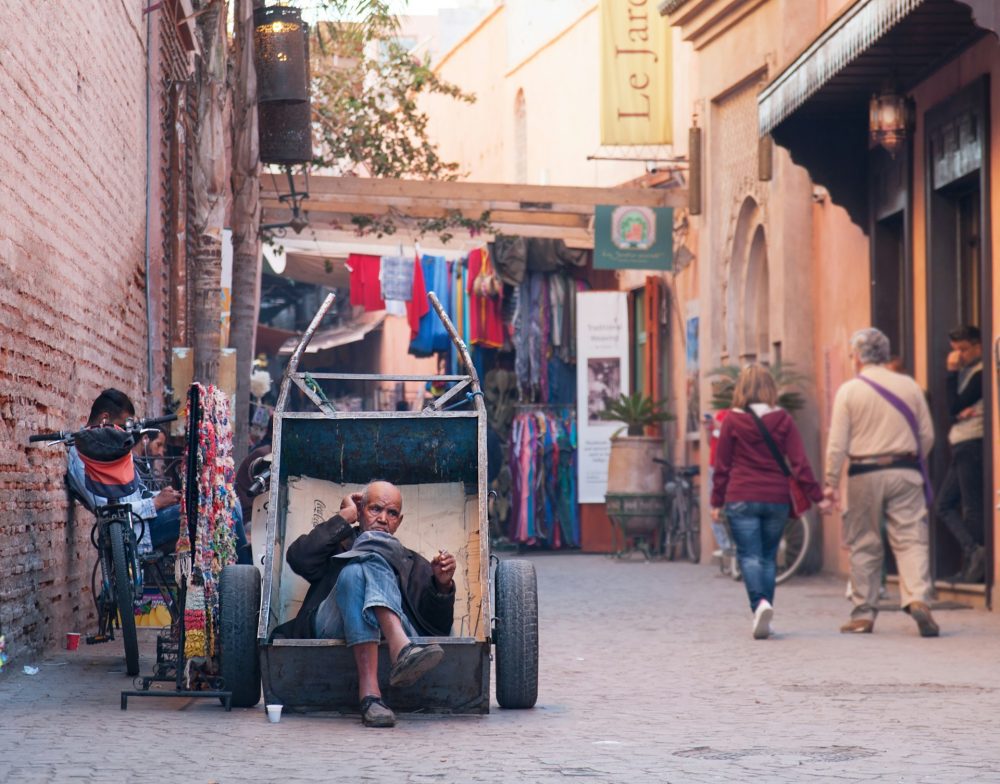Africa
Morocco’s Pension System Nears Crisis, Urgent Reform Needed
Morocco’s pension system faces urgent challenges: structural deficits, reserves projected to run out by 2031, demographic aging, and nearly 60% of workers lacking coverage. Inequalities between regimes deepen social injustice, while contributor-to-retiree ratios worsen. Reform is deemed essential to unify rules, ensure financial sustainability, extend coverage, and preserve intergenerational solidarity before crisis escalates.

The debate over pension reform is back in the spotlight in Morocco. Recent figures are ringing alarm bells: the pension system, long perceived as a social shield, is facing major financial, demographic, and social imbalances. Without rapid reform, its medium-term viability is threatened.
Why is pension reform essential?
- Regimes already in deficit
Public pension funds, particularly the Moroccan Pension Fund (CMR) and the Collective Retirement Allowance Scheme (RCAR), have been recording structural deficits for several years. Contributions from active workers are no longer sufficient to cover the pensions paid.
- Reserves soon to be exhausted
According to projections, the CMR’s reserves will be completely depleted by 2031. Beyond this date, the fund will no longer have the means to pay pensions, risking a sudden breakdown in its commitments to retirees.
- Demographic aging
Life expectancy in Morocco now exceeds 76 years. While this increase is good news, it increases pressure on the system: pensions must now be paid over more than 20 years, or even a quarter of an individual’s life.
- Millions of workers excluded
Nearly 60% of Moroccan workers have no pension coverage: farmers, seasonal workers, the self-employed, and informal workers. Without reform, these populations will age without resources, exacerbating social insecurity.
- Inequalities and complexity
The system has 9 separate regimes , each with its own rules. Public, private or semi-public: the gaps in pensions and rights are significant (8,394 DH on average in the public sector compared to 2,163 DH in the private sector). This disparity fuels a strong feeling of injustice.
- A demographic model in crisis
The Moroccan system is based on intergenerational solidarity: in 2000, there were 7 contributors for every 1 retiree. Today, there are only 2, and tomorrow, the trend could reverse.
The “Solidarity Square”: 4 pillars for sustainable reform
Faced with these challenges, several avenues are emerging to build a fairer and more sustainable system:
Standardize the schemes: unify the rules (age, contribution period, replacement rate) and allow the portability of rights.
Upgrading the private sector: reducing the pension gap between private and public sectors and strengthening contributor confidence.
Ensuring financial sustainability: controlling deficits and anticipating demographic aging.
Strengthening intergenerational solidarity: extending coverage to informal workers and guaranteeing young workers a retirement tomorrow.
Inaction, the worst-case scenario
Every year of delay makes reform more painful and costly. Better gradual, concerted reform today than an irreversible crisis tomorrow.
Conclusion
Pension reform in Morocco is not a political choice but a national, moral and social necessity . It must allow for the construction of a financially balanced, inclusive, equitable and sustainable system , guaranteeing the dignity of today’s retirees and future generations.
__
(Featured image by Evgeny Matveev via Unsplash)
DISCLAIMER: This article was written by a third party contributor and does not reflect the opinion of Born2Invest, its management, staff or its associates. Please review our disclaimer for more information.
This article may include forward-looking statements. These forward-looking statements generally are identified by the words “believe,” “project,” “estimate,” “become,” “plan,” “will,” and similar expressions. These forward-looking statements involve known and unknown risks as well as uncertainties, including those discussed in the following cautionary statements and elsewhere in this article and on this site. Although the Company may believe that its expectations are based on reasonable assumptions, the actual results that the Company may achieve may differ materially from any forward-looking statements, which reflect the opinions of the management of the Company only as of the date hereof. Additionally, please make sure to read these important disclosures.
First published in LES ECO.ma. A third-party contributor translated and adapted the article from the original. In case of discrepancy, the original will prevail.
Although we made reasonable efforts to provide accurate translations, some parts may be incorrect. Born2Invest assumes no responsibility for errors, omissions or ambiguities in the translations provided on this website. Any person or entity relying on translated content does so at their own risk. Born2Invest is not responsible for losses caused by such reliance on the accuracy or reliability of translated information. If you wish to report an error or inaccuracy in the translation, we encourage you to contact us.

-

 Fintech1 week ago
Fintech1 week agoImpacta VC Backs Quipu to Expand AI-Driven Credit Access in Latin America
-

 Impact Investing7 days ago
Impact Investing7 days agoClimate Losses Drive New Risk Training in Agriculture Led by Cineas and Asnacodi Italia
-

 Biotech2 weeks ago
Biotech2 weeks agoWhy Bioceres Shares Slide Into Penny Stock Territory
-

 Crowdfunding3 days ago
Crowdfunding3 days agoReal Estate Crowdfunding in Mexico: High Returns, Heavy Regulation, and Tax Inequality













